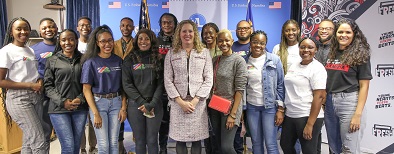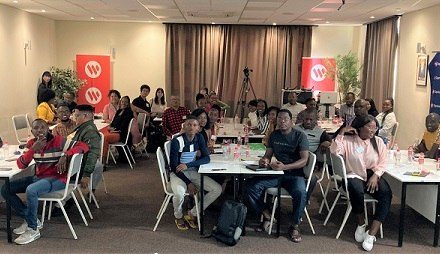
Prosperous Paths programme delivers
The ‘Prosperous Paths: Leading in Vocation’ programme which ran for a month surpassed its target of educating 5000 girls on gender equality and women’s empowerment.
According to Dennia Gayle of the United Nations Population Fund (UNFPA) and Anthea Basson of the United Nations Information Centre (UNIC) in Windhoek, with each ‘Prosperous Paths’, the number of empowered young girls increased.
“The power of such a programme to foster change and promote women’s agencies became ever more evident throughout the course of July,” they added.
The programme was launched in June by Kiki Gbeho, the United Nations Resident Coordinator (UNRC) to Namibia.
The team managed to have spoken to girls at 12 outreaches across Windhoek about the importance of striving to achieve Goal #5 of the Sustainable Development Goals, namely to ‘achieve gender equality and empower all women and girls’.
In celebration of the milestone, the UN System in Namibia and 700 female learners at Immanuel Shifidi Secondary School in Katutura had a special ceremony last week.
At the event, Gbeho, engaged the audience in an open dialogue on gender issues. She explained the UN’s concrete action plans to prevent gender injustice and she listened to suggestions from the girls how to tackle inequalities to bring about change.
Gbeho also urged the audience to start their own girls club at the school, a place where every female learner is warmly welcomed, helped and inspired by a great and unconditional appreciation.
Meanwhile, the UN System will continue its service to the girl child in Namibia by launching a follow-up campaign as part of the Prosperous Paths outreach this November.
The UN System said it is optimistic that with the help of the bright and passionate girls, gender equality can and will be achieved for every Namibian woman to bring about positive changes along their Prosperous Paths.













































